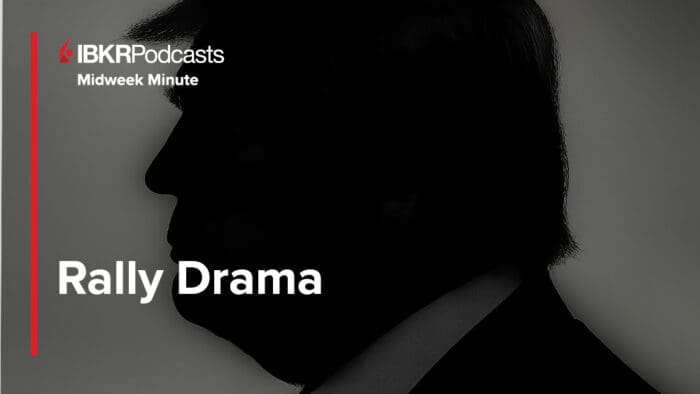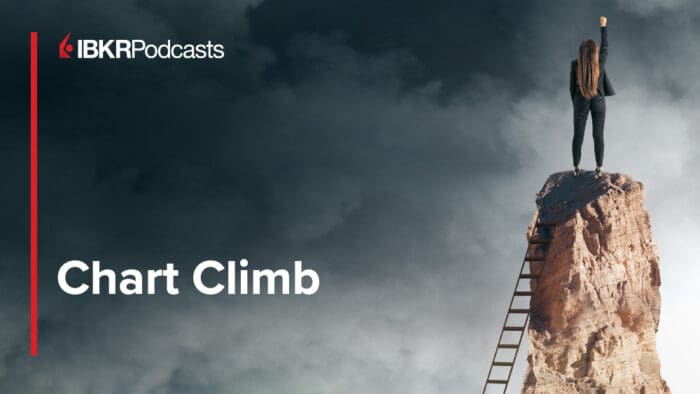Of all the many revenue-raising ideas that have bubbled up out of Washington, the recent proposal to tax unrealized capital gains is particularly jarring.
Even though reports suggest the proposed tax would apply only to people with at least $1 billion in assets, or anyone who has earned at least $100 million in income for three straight years, only the naive will believe Congress would stop there.
Many see this as an assault on hard work and risk taking—which is what it takes to accumulate unrealized capital gains—and one that would mutate like a monster driven mad by the taste of other people’s money. Faster than you could call your tax advisor, Congress might decide to go after the top 5% of earners—or even the top 10%—to fund a cornucopia of new programs.
Should such a day occur, it is important to know that there is a way to deal with an attack on unrealized gains that doesn’t require moving to another country with less-punitive tax regulations.
By selling bullish call options with strike prices that are higher than the underlying stock price, investors can generate income that could be used to pay taxes. (Call options give a buyer the right, but not the obligation, to buy an asset at a set price within a specific period.)
The covered-call strategy allows investors to collect rent on stocks that they own and prefer not to sell, or that they are willing to sell at higher prices. The strategy is often used by investors to enhance income on long positions, but it may be of special value for those facing taxes on unrealized gains.
Consider Tesla (ticker: TSLA). Founder and CEO Elon Musk is clearly high on the list of people who would be hit by such a tax. Maybe he has loads of free cash sitting around to pay tax bills, but it is likely that even the world’s richest man doesn’t have enough idle cash to cover unrealized capital gains on 171 million shares.
With Tesla’s stock at $1,037.86, Musk could sell the November $1,500 call for $3.30. If he sold 100,000 calls to cover 10 million shares, he would potentially pocket $33 million just for agreeing to sell his stock at a roughly $500 higher price on Nov. 19. The potential return is extraordinary for less than a month’s worth of risk.
Should the stock remain below $1,500, the $33 million premium would be Musk’s to keep. If the stock surged and was higher than $1,500 at expiration, Musk could sell the stock at an effective price of $1,503.30 (strike price plus call premium), or adjust the position in the options market to avoid having to sell the stock.
During the past 52 weeks, Tesla stock has ranged from $379.11 to $1,094.94. It is up 47% this year, and shares have seemingly entered a higher trading range.
Exactly how many calls Musk would need to sell to cover his unrealized capital gains bill is unclear. He would have to consider many factors, including the potential capital-gains tax on options income and even the strike prices at which Tesla awarded him stock.
Executing such an enormous trade, even for a simple strategy, involves a variety of market factors. It is probable that the pricing that is displayed for Tesla calls would change, maybe dramatically, on news that someone wanted to sell an extraordinary number of calls on such an extraordinarily volatile stock. There are also limits on position sizes.
Despite those complications, which are ultimately addressable, the key message is that Washington may taketh away, but Wall Street giveth the self-reliant many tools and strategies to stay a few steps ahead of the politicians.
—
Originally Posted on October 28, 2021 – How Elon Musk Could Pay for a Tax on Unrealized Capital Gains
Original Post on Barron’s Website: Updated Oct. 28, 2021 7:45 am ET / Original Oct. 28, 2021 4:15 am ET
Steven M. Sears is the president and chief operating officer of Options Solutions, a specialized asset-management firm. Neither he nor the firm has a position in the options or underlying securities mentioned in this column.
Disclosure: Interactive Brokers Third Party
Information posted on IBKR Campus that is provided by third-parties does NOT constitute a recommendation that you should contract for the services of that third party. Third-party participants who contribute to IBKR Campus are independent of Interactive Brokers and Interactive Brokers does not make any representations or warranties concerning the services offered, their past or future performance, or the accuracy of the information provided by the third party. Past performance is no guarantee of future results.
This material is from Barron's and is being posted with its permission. The views expressed in this material are solely those of the author and/or Barron's and Interactive Brokers is not endorsing or recommending any investment or trading discussed in the material. This material is not and should not be construed as an offer to buy or sell any security. It should not be construed as research or investment advice or a recommendation to buy, sell or hold any security or commodity. This material does not and is not intended to take into account the particular financial conditions, investment objectives or requirements of individual customers. Before acting on this material, you should consider whether it is suitable for your particular circumstances and, as necessary, seek professional advice.
Disclosure: Tax-Related Items (Circular 230 Notice)
The information in this material is provided for informational purposes only and does not constitute tax advice and cannot be used by the recipient or any other taxpayer to avoid penalties under any federal, state, local or other tax statutes or regulations, or to resolve any tax issue.
Disclosure: Options Trading
Options involve risk and are not suitable for all investors. For information on the uses and risks of options, you can obtain a copy of the Options Clearing Corporation risk disclosure document titled Characteristics and Risks of Standardized Options by going to the following link https: ibkr.com/occ. Multiple leg strategies, including spreads, will incur multiple transaction costs.



















Join The Conversation
For specific platform feedback and suggestions, please submit it directly to our team using these instructions.
If you have an account-specific question or concern, please reach out to Client Services.
We encourage you to look through our FAQs before posting. Your question may already be covered!